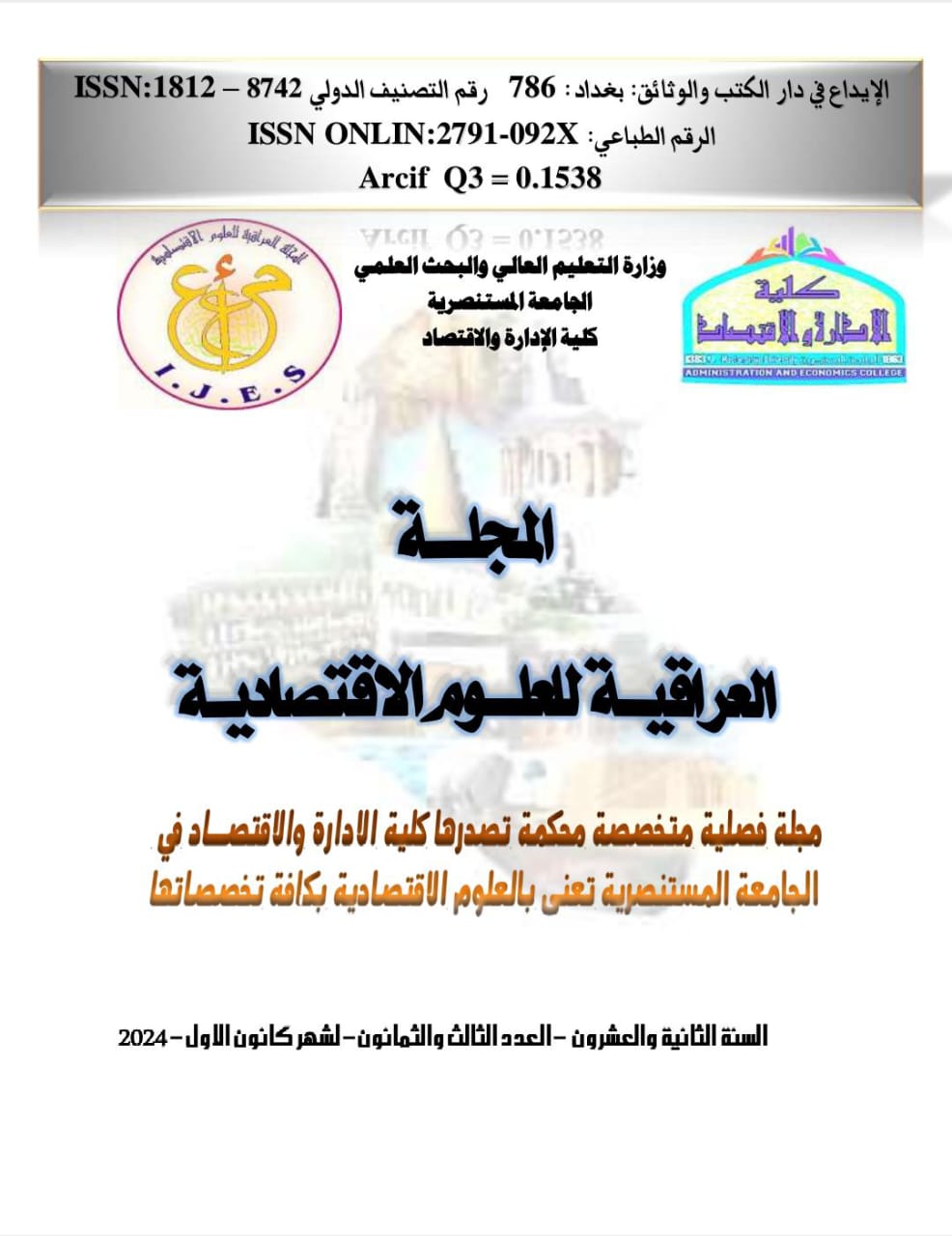An Econometric Study of the Impact of Oil Exports on Economic Growth in Iraq During the Period 1993-2022
DOI:
https://doi.org/10.31272/3a5hkb57Keywords:
Economic growth, Oil exports, Measuring the rate of economic growth.Abstract
The research aimed to measure the impact of oil exports on achieving economic growth in Iraq during the period (1993/2022) given that oil exports in Iraq are considered one of the most important public revenues in the Iraqi economy, which makes them play a major and important role in achieving economic growth. In this context, the research was divided into two sections. The first section dealt with the "theoretical framework", which included concepts about economic growth (definition, types, influencing factors, and the relationship between exports and growth), while the second section, the "applied framework", dealt with measuring the impact of oil exports on economic growth in Iraq during the period 1993-2022. The research concluded that multiple factors affect the achievement of economic growth, such as the element of labour, capital, and the availability of natural resources, in addition to the necessity of achieving security and political stability in the country, which is reflected in increasing production, investment, and exports that achieve economic growth. The research also concluded that there is a direct relationship with statistical significance between oil exports and economic growth in Iraq in both the long and short term and that successive Iraqi governments after 2003 until the end of the research were unable to achieve the required economic diversification for the export structure. The research also recommended the necessity of working to achieve economic diversification from the current growth model in Iraq, which is based on oil exports as a main source of exports and revenues in the country, to balance development in all productive sectors, whether agricultural, industrial, or otherwise.
Downloads






